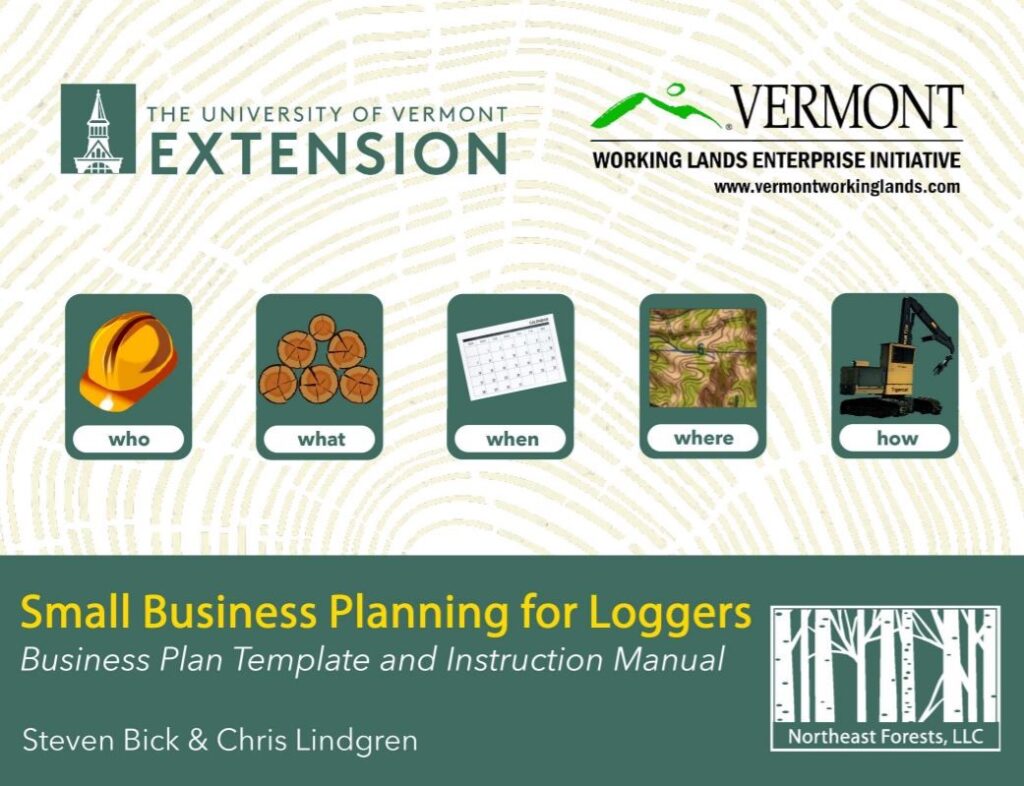UVM Extension Forest Business has added a new tool to the digital resources available to forest products businesses. Small Business Planning for Loggers was produced by Steve Bick and Chris Lindgren with support from Vermont’s Working Lands Enterprise Initiative.
Forest Business has been supporting digital tools and skill development in our work for five years now. Whether it’s bringing bookkeeping to the computer or online, using video conferencing for meetings, developing digitally based tools, or collaboration in cloud-based applications, acceptance of digital tools is increasingly becoming the norm with the business owners who engage in our program.
This morning as I was working on this blog I read a press release about a new report on digital skills development in rural America—Unlocking the Digital Potential of Rural America. Commissioned by Amazon and researched by the US Chamber of Commerce the report concludes that the adoption of new digital skills and technology in rural America will lead to significant economic gains.
“Increased adoption of online tools and digital services for businesses across rural America could create more than 360,000 jobs in the next three years.”
“Increased adoption could grow annual revenues of rural small businesses by more than 21% over the next three years – the equivalent of $84.5 billion per year.”
“Online tools and technology have the highest potential impact on rural small businesses with annual revenue under $100,000.”
I completely agree. This is a huge opportunity for Vermont. Vermont’s small businesses have much to gain by developing digital know-how and adopting digital tools. Forest Business will continue to support development of digital skills and tools for Vermont’s forest economy. Stay up to date on Forest Business programs here.
Do you have thoughts on digital skills education? Please take a moment to fill out our educational resource assessment survey. Thank you.


